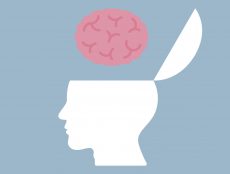
Articles
Editor’s Picks
Chegg CEO Dan Rosensweig: Translation Should Be An Aspect of Personalized Learning
By Henry Kronk
May 10, 2019
Last week, Yahoo Finance brought Chegg CEO Dan Rosensweig on their show to discuss the higher education landscape in the wake of the college admissions scandal. The conversation was wide-ranging, but between the tired topics of mounting student debt and the power of privilege in America, Rosensweig introduced one topic that has not become widely discussed in the spheres of higher education or edtech.
Like many education stakeholders, Rosensweig responded to questions about the (still developing) college admissions scandal by saying how, in the grand scheme of things, there’s a lot more at stake than a handful of wealthy students paying to get in to top tier schools.
“There are a lot of variables here.”
“It’s obviously unfortunate when people use leverage or wealth to take advantage of things,” Rosensweig said. “The bigger problem for me isn’t the 100 people who do this [pay to get in]. Why does college cost this much? Why does it take four years? Why do so many people default on their [student] loans? (40% default on their loans.) Why do costs continue to rise? Why doesn’t curriculum continue to evolve? Why does it take four or five months to find out if you got in to a school? Why do you have to pay to apply to school? Why do college rankings include things that have nothing to do with the academic quality of the school? There are a lot of variables here.”
As a fix for at least a few of these issues, Rosensweig provided a familiar response: personalize learning.

“My perspective and Chegg’s perspective is that we have to make learning more available—more available and more affordable,” Rosensweig told Yahoo Finance. “That means it has to be downloadable. It has to be on-demand. It has to be adaptive, which means it has to understand what your strengths and weaknesses are and improve you, level you up wherever you are. It has to be personalizable, which means how do you learn best, do you learn best through video? Do you learn best through human-to-human interaction?”
But before it was time for the next segment, Rosensweig added a point that has not been fully explored—or capitalized—by the edtech sector.
Chegg Is Working on Content In Other Languages in the Name of Personalized Learning
“Every product that Chegg builds tries to incorporate multiple ways the individual might learn, including, eventually, translation capability,” Rosensweig said. “Why? In 2022, English will be the second language of 25% of the college base. That doesn’t mean they can’t understand or can’t speak it. But with immigration and diversity of economic classes, we need to support the way that students learn today.”
Personalized or adaptive learning refers to many things. With teaching technology, it can mean allowing students to progress at their own pace, or even delivering content via AI. But by and large, personalized learning does not let learners learn in their language of choice. Its true that numerous edtech providers have released their products and services in numerous languages. But providing translations of coursework tends not to be a feature that’s baked in. It remains to be seen what that will look like with Chegg products or other items on the market.
Featured Image: Mateo Mood, Unsplash.









No Comments